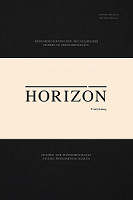WRITING AS A MODEL OF CULTURAL SEDIMENTATION AND MEMORY: FERRARIS, DERRIDA AND HUSSERL
WRITING AS A MODEL OF CULTURAL SEDIMENTATION AND MEMORY: FERRARIS, DERRIDA AND HUSSERL
Author(s): Dalius JonkusSubject(s): Philosophy, Structuralism and Post-Structuralism, Culture and social structure , Phenomenology
Published by: Издательство Санкт-Петербургского государственного университета
Keywords: mobile phone; writing; memory; sedimentation; phenomenology; Ferraris; Derrida; Husserl;
Summary/Abstract: Despite their creativity, cultural actions are not established out of nothing. They are based on previous actions, their passive or active memory, and extension. Sedimentation is the depositing of sediments that occurs during certain processes. They testify to the processes that have taken place and themselves become significant links or traces. Different layers of sediment are formed, which testify to past events, which have structures in the present. The best-known phenomenological concept of sedimentation was formulated in Husserl’s text The Origin of Geometry. Husserl uses the specific geological term of sedimentation to describe the science of geometry as a linguistically (written) mediated genesis of conceptual knowledge. The human practice of knowledge can be transmitted to other generations only by expressing it linguistically and recording it in writing. Derrida used the phenomenological concept of sedimentation and created Grammatology. Maurizio Ferraris applied these ideas of Derrida while developing the theory of documentality. The main idea of documentality is that a particular kind of social objects, namely documents (records of social acts) are the ground of social reality. For all three philosophers, writing or recording becomes a model for reflecting on cultural-social reality. The purpose of this article is to discuss the writing as a model for cultural sedimentation and memory. Husserl understood writing as a sedimentation that must be reactivated. However, Derrida and Ferraris identify the written objects only with materialized writing and the repetition of what is written. They do not distinguish between imitative and comprehensive reading.
Journal: Horizon. Феноменологические исследования
- Issue Year: 12/2023
- Issue No: 1
- Page Range: 103-114
- Page Count: 12
- Language: English

